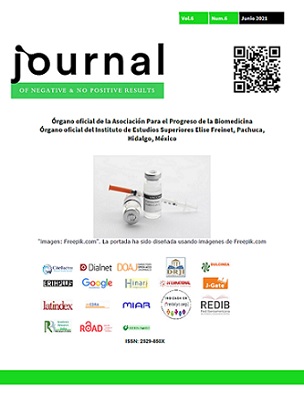Teaching Family Medicine at the University during the SARS-CoV-2 coronavirus pandemic
DOI:
https://doi.org/10.19230/jonnpr.3980Keywords:
telematics, online classes, audiovisual media, medical educationAbstract
Introduction. The SARS-CoV-2 (COVID-19) coronavirus pandemic has changed lifestyles, work styles and, of course, training and teaching.
Objective. To evaluate the training via telematics of the subject of Family Medicine at the University of Castilla la Mancha.
Methods. it was proposed to implement a methodology of telematic classes, allowing the student to self-manage their time and receive the contents at a distance. The acceptance of the new methodology was subsequently evaluated through satisfaction surveys and the effect of the methodology on the students' grades was evaluated comparatively.
Results. Favorable results were obtained with a global average for the course of 4.95 out of 5 for the year 2020 and 4.85 and 4.87 for the years 2018 and 2019. The specks obtained above all in the theory exam are higher than that of these years.
Conclusion. It is concluded that the telematic modality is a learning methodology valued positively by the students with a favorable impact on their academic results.
Downloads
References
Ellaway R & Masters K. (2008). AMEE Guide 32: E-Learning in medical education. Part 1: Learning, teaching and assessment. Medical Teacher 30,455-473.
Lewis KO, Cidon MJ, Seto TL, Chen H & Mahan JD. (2014). Leveraging e-learning in medical education. Current Problems in Pediatric and Adolescent Health Care 44,150-163.
Rose S. (2020). Medical Student Education in the Time of COVID-19. JAMA 323, 2131-2132
Taha MH, Abdalla ME, Wadi M & Khalafalla H. (2020). Curriculum delivery in Medical Education during an emergency: A guide based on the responses to the COVID-19 pandemic. MedEdPublish 9,69.
Wilkinson D. (2012). The future of medical education: all about being connected. The Ochsner Journal 12:300–301.
Liyoshi, T & Kumar, MSV. (2016). Opening Up Education (p. 504). The MIT Press.
Isaac M & Rief W. (2009). Role of behavioural and social sciences in medical education. Curr Opin Psychiatry22, 184-187.
Wong G. (2013) The curse of paradigms? Med Educ.47, 333–41.
Published
Issue
Section
License
All accepted originals remain the property of JONNPR. In the event of publication, the authors exclusively transfer their rights of reproduction, distribution, translation and public communication (by any sound, audiovisual or electronic medium or format) of their work. To do so, the authors shall sign a letter transferring these rights when sending the paper via the online manuscript management system.
The articles published in the journal are freely used under the terms of the Creative Commons BY NC SA license, therefore.
You are free to:
Share — copy and redistribute the material in any medium or format
Adapt — remix, transform, and build upon the material
The licensor cannot revoke these freedoms as long as you follow the license terms.
Under the following terms:
Attribution — You must give appropriate credit, provide a link to the license, and indicate if changes were made. You may do so in any reasonable manner, but not in any way that suggests the licensor endorses you or your use.
NonCommercial — You may not use the material for commercial purposes.
ShareAlike — If you remix, transform, or build upon the material, you must distribute your contributions under the same license as the original.
No additional restrictions — You may not apply legal terms or technological measures that legally restrict others from doing anything the license permits.

This work is licensed under a Creative Commons Attribution-NonCommercial-ShareAlike 4.0 International License

























